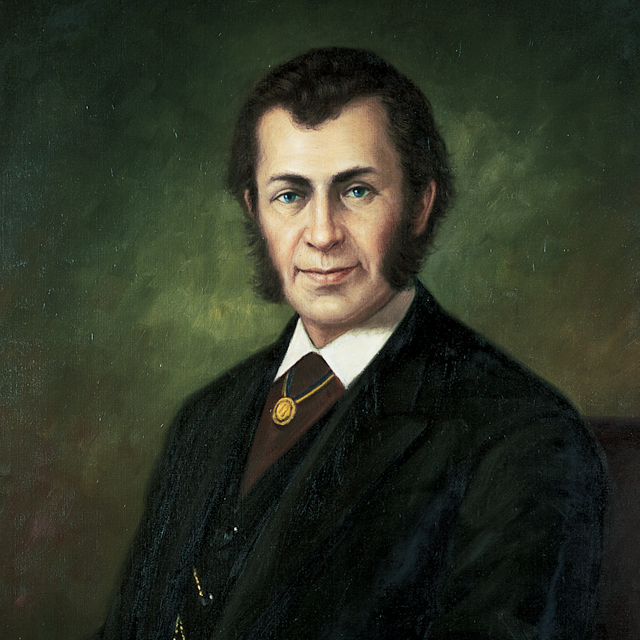William Chauvenet was born on a farm near Milford, Pennsylvania in 1820 and was raised in Philadelphia.
Early in life he exhibited a knack for mathematics and all things mechanical, and he attended Yale University, where his father wished for him to study for a career in business. Entering Yale at age 16, he graduated in 1840 with high honors and soon after began his scholarly career by assisting a professor at Girard College in Philadelphia in a series of magnetic observations.
In 1841 he was appointed professor of mathematics in the U.S. Navy and for a few months served on the U.S. steamer Mississippi, where he taught midshipmen. He later taught at and was instrumental in the establishment of the U.S. Naval Academy at Annapolis, Maryland.
In 1859, he was offered a professorship at his alma mater at the same time he was offered a position at Washington University as professor of mathematics and astronomy. He chose St. Louis over New Haven and brought with him a deep love of music and a familiarity with the classics, in addition to being an outstanding figure in the world of science, noted by many historians as one of the foremost mathematical minds in the U.S. prior to the Civil War. It was Chauvenet who mathematically confirmed James B. Eads’ plans for the first bridge to span the Mississippi River at St. Louis.
The question — What shall we teach, and how shall we teach it? — when proposed in relation to a community, involves the whole question of life. What kind of lives shall we live? What shall be our aims, our occupations? What kind of beings shall we be?
William Chauvenet, Inaugural address, June 17, 1863
So it was not at all surprising that the directors of the university chose him to be chancellor when his friend and Yale classmate Joseph Hoyt died in 1862. He came to his chancellorship in the midst of the Civil War in a state divided by the question of slavery.
Washington University went through a great period of growth during his chancellorship, adding dozens of professors, hundreds of students and several new programs, including the establishment in 1867 of the law school. Just as impressive were his contributions to science and his masterful treatises on trigonometry, astronomy and geography. He served terms as vice president of the National Academy of Sciences and president of the American Association for the Advancement of Science, and was a member of both the American Philosophical Society and the American Academy of Arts and Sciences. After his death, the Mathematical Association of America established a prestigious prize in his honor, the Naval Academy named a mathematics building for him, and the U.S. Navy christened two ships Chauvenet.
Chauvenet resigned in 1869 due to a lung ailment and died on December 13, 1870.
He, too, was one of nature’s noblemen. He was not only a man of genius, but had improved his natural gifts by an intellectual and moral culture as rare, in the present day, as it is admirable. His name conferred early distinction upon this university.
William Greenleaf Eliot
